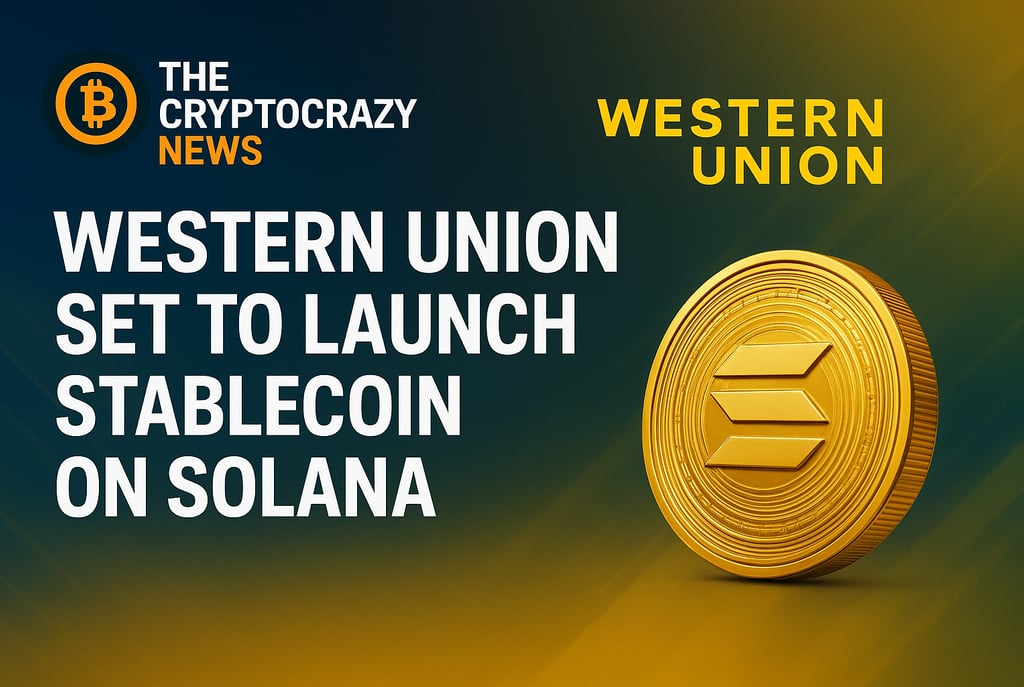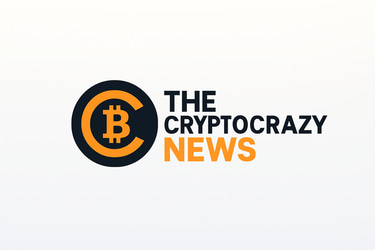Western Union Set to Launch Stablecoin on Solana; Partnership Marks Major Step Toward Blockchain-Powered Payments
In a pioneering move for the international payments sector, Western Union has made plans to introduce its own stablecoin on the Solana blockchain, marking a major step toward blockchain financial infrastructure. This development puts Western Union — a cross-border remittance market leader — at the cutting edge of fintech innovation, marrying its worldwide presence with the speed and scalability of Solana's blockchain platform.
10/28/20253 min read


A Major Leap Toward Blockchain Integration
Western Union's move into the stablecoin space represents the company's expanding strategy to digitize cross-border payments with blockchain. Historically, the company has worked through traditional remittance rails — a system that has been faulted for high costs and slow processing. By harnessing Solana's high-performance blockchain, Western Union is looking to provide instant, low-cost, and transparent transactions to millions of consumers around the world.
The as-yet-unnamed stablecoin will probably be tied to the U.S. dollar, providing users the security of fiat money with the effectiveness of digital assets. Experts in the industry believe that this project has the potential to cut transfer costs by as much as 80%, settling trades within seconds.
Why Solana? Speed, Efficiency, and Global Scalability
It is no accident that Western Union went for Solana (SOL). Solana has proven to be one of the world's fastest and least expensive blockchains — supporting more than 65,000 transactions per second with some of the lowest fees. This makes it a perfect platform for high-volume financial services like remittances and cross-border payments.
In addition, Solana's robust DeFi and stablecoin ecosystem — already home to prominent projects such as USDC and PYUSD — provides Western Union with access to a mature blockchain network that's optimized for both retail and institutional applications.
Shaping the Future of Global Remittances
Western Union has been a leader in global remittances for years, particularly between emerging markets in Asia, Africa, and Latin America. Using blockchain technology, the firm is hoping to make it easier for unbanked and underbanked communities to access financial services with faster and cheaper payments.
Analysts predict that a blockchain-powered stablecoin could cut transaction costs, reduce reliance on intermediaries, and make remittances more accessible to people with limited banking access — aligning perfectly with Western Union’s long-term mission of global financial connectivity.
Industry Experts React to the Move
Market experts view Western Union’s foray into blockchain as a major validation of stablecoin utility in traditional finance. According to fintech analyst Daniel Hughes,
"Western Union's move into the stablecoin market is an open indication that traditional financial institutions are acknowledging the strength of blockchain to change the way payments work. Solana's scalability, security, and low fees position it as a natural fit for this type of innovation."
The announcement comes alongside increasing momentum for real-world asset (RWA) adoption and on-chain financial settlements, directions that are transforming money movement into the future globally.
Regulatory Considerations and Compliance
As Western Union enters the crypto universe, it's likely to play close attention to regulators in order to comply fully with AML (Anti-Money Laundering) and KYC (Know Your Customer) regulations. This should position the project as among the most regulator-friendly blockchain payment systems out there — an important consideration as governments increasingly exert control over digital currencies.
The project has the potential to establish a new standard for regulated stablecoin adoption, balancing consumer and investor protection with innovation.
What This Means for Solana
The partnership is a huge boost for Solana, which continues to garner institutional interest even amid overall market uncertainty. SOL's price modestly increased after the announcement, reflecting investors' renewed confidence in Solana's increasing real-world applications.
This partnership further solidifies Solana's position as a top blockchain for enterprise-scale adoption, setting the stage for even more established financial titans to take advantage of its infrastructure for global payments and settlement solutions.
Conclusion: A Step Toward the Future of Finance
Western Union's move to introduce a stablecoin on the Solana blockchain is a game-changer in the history of global payments. Merging blockchain speed with Western Union's global network, the action has the potential to redefine the flow of money across borders — faster, cheaper, and more securely than previously thought.
As stablecoins become respected and real-world adoption increases, Western Union's strategic jump may well set a model for traditional finance incumbents looking to transition into the future of digital currencies
